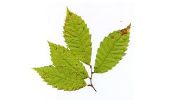Combining Holism and Interactionism. Towards a Conceptual Clarification
DOI:
https://doi.org/10.17505/jpor.2015.19Keywords:
holism, interactionism, person-oriented, organism-environment system, non-reducibility, non-separability, self-organization, person-environment systemAbstract
The terms “holism” and “interactionism” are central to the person-oriented approach, especially as formulated in Magnusson’s (2001) holistic-interactionistic paradigm. However, Nilsson (2015) has recently argued that at least some forms of holism and interactionism need to be disentangled. This raises some general questions about what is meant by “holism” and “interactionism” and whether there are problems with combining them in one paradigm. The purpose of the present paper is to make a contribution to an increased conceptual clarity in this area. For this purpose a brief review is first made of how various writers have conceptualized holism and interactionism. On the basis of this review, a preliminary definition and differentiation of holism and interactionism is proposed, which suggests that holism and interactionism refer to different kinds of questions: Whereas holism involves assumptions about the relations between a whole and its parts (e.g., non-reducibility of the whole to its parts, and non-separability of the parts from the whole), interactionism refers to assumptions about causality. It is argued that both kinds of questions are relevant to all fields of study, and that questions about holism (e.g., whether a certain system is holistic or not) and interactionism (e.g., whether the interactions that occur are unidirectional or bidirectional) therefore need to be asked in any field of study. This reasoning is then illustrated by applying it to some questions concerning the nature of the organism-environment system. Finally, there is a brief discussion of the relevance of all this for a person-oriented approach to psychological science.
Downloads
Published
Issue
Section
License
Authors of articles published in Journal for Person-Oriented Research retain the copyright of their articles and are free to reproduce and disseminate their work.

